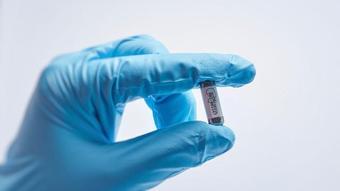Researchers from NYU (University of New York) in Abu Dhabi, United Arab Emirates, Brigham and Women’s Hospital and MIT (Massachusetts Institute of Technology) have developed an electronic capsule that can help in the treatment of metabolic, neuropsychiatric and gastrointestinal diseases.
The device demonstrated the ability to modulate the levels of a hormone that acts directly on the feeling of hunger.
Called FLASH, the capsule is billed as “an ingestible electroceutical device for the neuromodulation of the gut-brain axis, the signaling pathway between the gastrointestinal tract and the central nervous system.”
• Share this news on Whatsapp
• Share this news on Telegram
Electroceutical therapies have been described by many scientists as the future of traditional medicines. Studies point to a variety of uses for diseases that affect the nervous system and other organs.
“An ingestible pill that contains electronic components instead of chemicals or drugs is very promising”, says in a statement one of the authors of the work, Professor Khalil Ramadi, from New York University.
In an article titled “Bioinspired, fluid-absorbing ingestible electroceutical capsules for hunger-regulating hormone modulation,” published this Wednesday (26) in the journal Science RoboticsRamadi’s team details the results of the technology development study.
The design of the FLASH capsule was inspired by the Australian lizard, whose skin is known for the microstructures that collect water by capillarity.
Grooved patterns and a hydrophilic surface (compatible with water) prevent gastric fluid from the stomach, achieving direct contact of the electrode with the tissue of the organ wall.
The device demonstrated conditions to modulate the levels of a hormone excreted in the stomach, ghrelin, which is responsible for increasing appetite levels.
The capsule is powered by ingestible batteries that provide stimulation for 20 minutes. They are excreted within two weeks of ingestion, according to tests carried out on large animals.
The authors of the work consider that it has an advantage over the usual hormonal drugs, since these have a low bioavailability (active portion of the drug that enters the body) – it is for this reason that insulin, for example, has to be injected .
“This development offers many new avenues for research into the complex interconnections between the brain and gut and to promote the use of electroceuticals as a clinical intervention,” said James McRae, another author of the paper.
Ramadi calls this type of therapy “the next frontier in neuromodulation”.
“FLASH is one of the first ingestible electroceuticals that can regulate precise neurohormonal circuits, preventing the discomfort that patients may experience with invasive treatments. Future ingestible electroceutical systems can be designed and customized for specific applications beyond acute and short-term gastric stimulation. term”, says the scientist.
Garlic helps control cholesterol and is associated with a lower risk of colorectal cancer
” layout=”responsive”>


